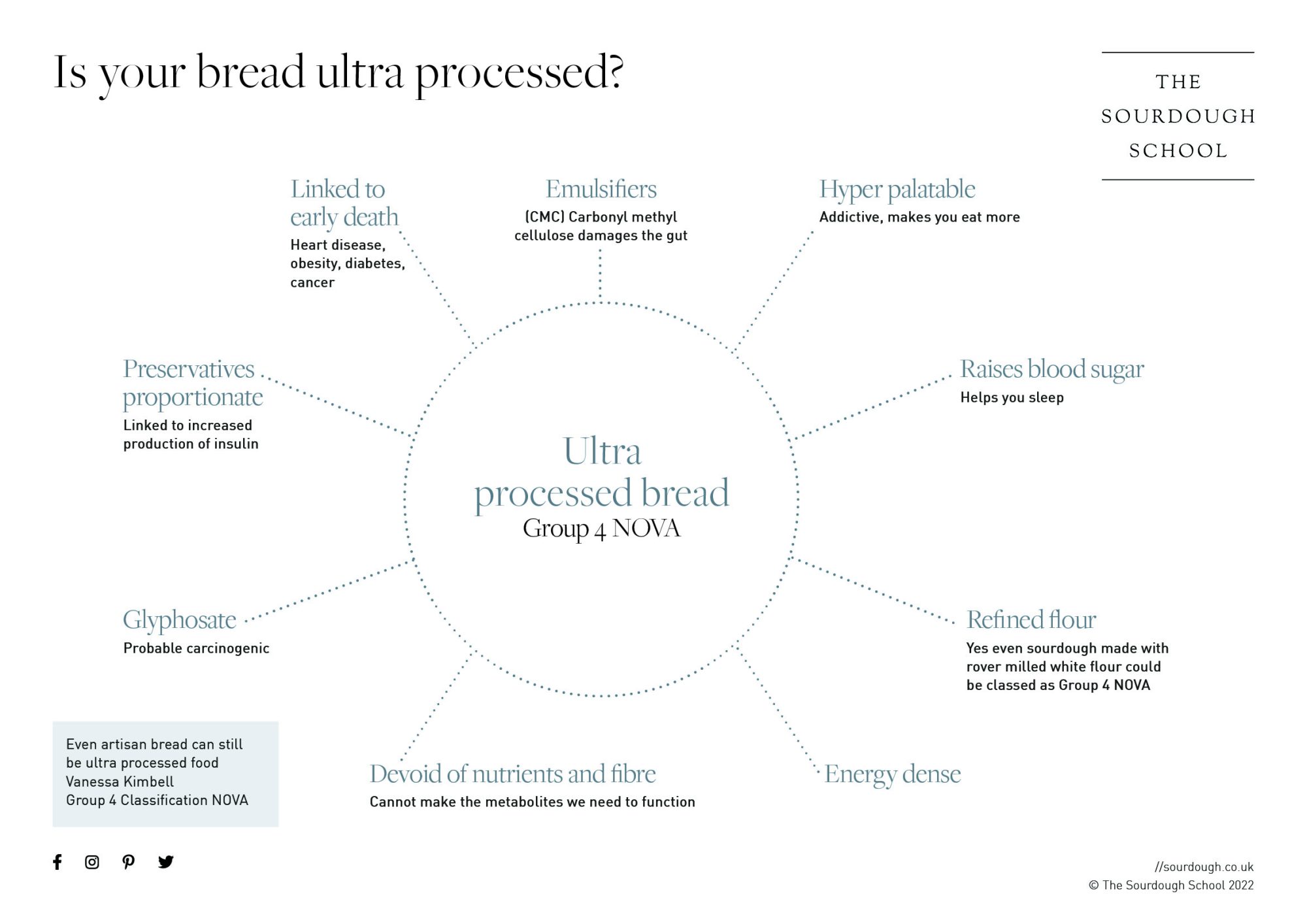Our approach integrates health, education, agriculture, and social justice, with bread as its unifying element.
For anyone who has attended The Sourdough School, the story of how we established a self-sustaining systems change programme is woven into the bread itself. For over twenty years, our approach to teaching the healthiest bread in the world has been about more than baking – it’s been about inspiring a movement. This movement transforms how we think about bread, health, and the environment, showing that true nourishment comes from connecting all the elements in the system.
The Sourdough School’s unique model works by training both bakers and healthcare professionals
The Sourdough School’s unique model works by training both bakers and healthcare professionals and reinvesting fees to create a ripple effect of change. By weaving together social justice, environmental values, and our educational awards programme, we deliver social transformation through initiatives like prescribing baking as lifestyle medicine (BALM).
You’ll often hear Vanessa describe artisan baking as a “delicious form of defiance.” This is because baking is about so much more than creating beautiful bread – it’s about educating and inspiring people to see bread as a system. From soil and farmers to millers, bakers, and those who eat the bread, every link in the chain matters. And crucially, it’s about showing healthcare professionals how bread can nourish, not harm. For too long, they have had to manage the fallout of poor diets. What if bread could be part of the solution? Bread has the potential to nourish on every level – and we know it can be a tool for preventative health.
Why did we create an educational approach that trains both bakers and healthcare professionals?
Our decision to teach both bakers and healthcare professionals was born from a need we could no longer ignore. In 2018, we launched the RCGP-accredited Nutrition & Digestibility of Bread courses. These courses were incredibly popular, but as we listened to our students – bakers and healthcare providers alike – we saw a clear gap. Healthcare professionals told us they lacked tools to guide their patients away from harmful ultra-processed foods, and bakers shared frustrations at how industrial bread production had devalued their craft and the nutrition of bread itself.
Through these conversations, we realised that the healthiest bread can only be made by teaching the whole system – not in isolation. Bakers need to understand the impact of fermentation, fibre, and diversity in grains. Healthcare professionals need to appreciate how bread, made well, can support gut health, balance blood sugar, and promote satiety. And both groups need to see how their roles are interconnected. Bread isn’t just a food; it’s a story of relationships – between soil, millers, farmers, and the hands that shape it.
Connecting Soil, Millers, Farmers, Bakers, and Doctors
The truth is, the challenges we face go beyond individuals. The global industrialisation of food has created a system where ultra-processed bread dominates, and people have lost touch with what real bread can do for their health. Healthcare providers are left treating symptoms of poor diets, while bakers are pressured to produce cheaper and cheaper loaves. Both groups are trapped in a system that devalues bread nutritionally, economically, and socially.
That’s why we didn’t just create another course. We created a system. A system that empowers all stakeholders to reconnect with the full story of bread – from soil health to the microbiome. We teach bakers how to make bread that supports health. We show healthcare professionals how to use bread as a tool for preventative care. And we build bridges between them so that knowledge flows in both directions. Together, they can reshape the way we value bread and, by extension, our food system itself.

Change happens when you educate everyone
True change starts with education. That’s why our courses go beyond teaching how to bake bread. They empower people to see bread as a system and to understand how every decision – from grain diversity to fermentation – contributes to health. Through our formalised, evidence-based framework, we’ve created a self-sustaining ecosystem that brings together industrial breadmakers, artisan bakers, and healthcare providers. Each stakeholder plays a vital role in making the healthiest bread accessible to all.

